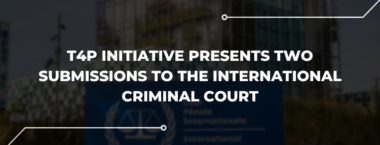
Torments, Torture Chambers, Executions: T4P Initiative Presents Two Submissions to the International Criminal Court
Information about extrajudicial executions of Ukrainians by the Russian military and Russian torture chambers in...
28 September 2023
Russian soldiers breaking into Ukrainian churches to conduct illegal searches. So far, we know about the abduction of at least ten priests, most belonging to the Ukrainian Orthodox Church – in particular, in Kherson Oblast. The Russian military there is also resorting to detaining and torturing civilians, while in Kyiv Oblast, the locals are busy calculating the damage done to infrastructure. More on this below.
***
Archpriest Vasyl Vyrozub, clergyman of the Odesa Eparchy of the Ukrainian Orthodox Church, was taken hostage along with the crew of the ship Sapfir while on a rescue mission to Zmiinyi Island launched after the reports on the death of the border guards there. His wife was not even aware that Vasyl had been on that ship.
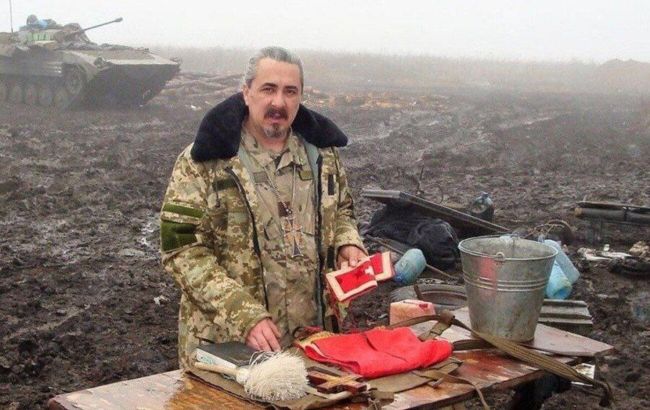
“It was a top secret mission. I didn’t know that my husband was on that ship. I found out only when he called me and said that he had been captured and needed help,” says Lyudmyla, wife of Archpriest Vasyl Vyrozub.
An exchange of prisoners took place on March 24, after which 19 Ukrainian civilian sailors from the Sapfir returned home, but Vasyl Vyrozub was not among them. “I have been in contact with representatives of the Red Cross, with government officials about an exchange. But so far there’s been no results. Negotiations are still ongoing,” Bishop Afanasiy told MIHR.
By detaining members of clergy, Russians are violating several norms at once, says Mykola Kikkas, expert of the Regional Center for Human Rights:
– Fourth Geneva Convention;
– provisions of international humanitarian law.
They will be held accountable for this in Ukrainian courts under Article 438 of Ukraine’s Criminal Code, as well as by the International Criminal Court.
“Although, when in the custody of the enemy state, a chaplain is not considered a PoW, he is still entitled to all rights and privileges guaranteed by the Geneva Convention relative to the Treatment of Prisoners of War of 1949,” explains the lawyer.
There could be a number of motives for taking priests hostage. To name a few, according to Mykola Kikkas:
– forcing them to cooperate;
– keeping them silent through intimidation;
– pressuring religious denominations the occupying power finds undesirable;
– demanding a ransom or adding to the “prisoner exchange fund.”
***
The occupants continue detaining people in Kherson Oblast. Their family members have been gathering near captured administrative buildings in the dozens. Some say that the prisoners have been subjected to torture. Svitlana’s husband, ex-military, was detained when he went out for gasoline. Russian soldiers escorted him home a couple of hours later.
“His face was covered in blood. His nose was broken, his jaw was broken,” his wife Svitlana told MIHR. The soldiers searched their apartment, then put bags on Svitlana, her husband and their son’s heads, tied their hands and took them to the police station. There, the family was interrogated as the Ukrainian soldier was tortured in the next room.
Beatings and inhuman treatment of civilians is a war crime under the Rome Statute, says Roman Martynowsky, expert of the Regional Center for Human Rights. His advice for witnesses is to take photos and videos of torture if possible, as well as to memorize the details: who’s doing the interrogation and where it takes place.
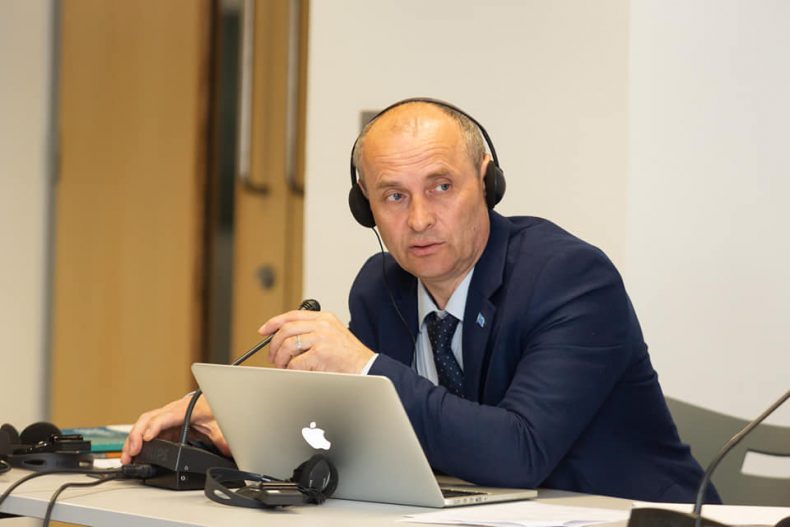
***
Meanwhile, the Ukrainian military is inspecting liberated settlements in Kyiv Oblast. The village of Horenka, while spared an actual occupation, still suffered significant damage. According to the locals, they had air strikes, Grad and mortar shelling. Over 50% of people’s homes were destroyed.
“I counted three Grad shellings,” recalls an 80-year-old resident of Horenka. According to him, the village survived thanks to volunteers. They provided humanitarian aid when the authorities abandoned the village at the beginning of the war.
Additional information.
In conjunction with UHHRU, MIHR is doing a newsletter containing the most important facts.
Sign up for the Ukrainian newsletter HERE.
Sign up for the English newsletter HERE.
Please check your spam and advertising folder after subscribing.
UHHRU participation in the creation of information materials was made possible by the generous support of the American people through the United States Agency for International Development (USAID) in the framework of the Human Rights in Action Program implemented by the Ukrainian Helsinki Human Rights Union.
USAID is the world’s premier international development agency and a catalytic actor driving development results. USAID’s work demonstrates American generosity, and promotes a path to recipient self-reliance and resilience, and advances U.S. national security and economic prosperity. USAID has partnered with Ukraine since 1992, providing more than $3 billion in assistance. USAID’s current strategic priorities include strengthening democracy and good governance, promoting economic development and energy security, improving health care systems, and mitigating the effects of the conflict in the east. For additional information about USAID in Ukraine, please call USAID’s Development Outreach and Communications Office at: +38 (044) 521-5753. You may also visit our website: http://www.usaid.gov/ukraine or our Facebook page at https://www.facebook.com/USAIDUkraine.
If you find an error on our site, please select the incorrect text and press ctrl-enter.

Information about extrajudicial executions of Ukrainians by the Russian military and Russian torture chambers in...
28 September 2023
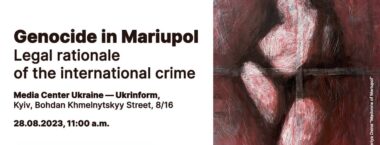
The initiative of the T4P (Tribunal for Putin) presents its first document with systematic justification...
23 August 2023
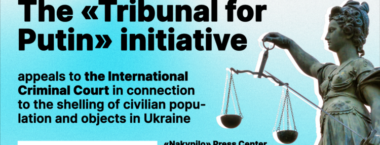
Since the onset of the full-scale invasion, the «Tribunal for Putin» initiative has recorded about...
18 August 2023
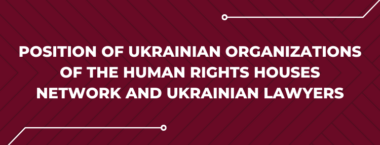
Position of Ukrainian organizations of the Human Rights Houses Network and Ukrainian lawyers on the...
17 July 2023